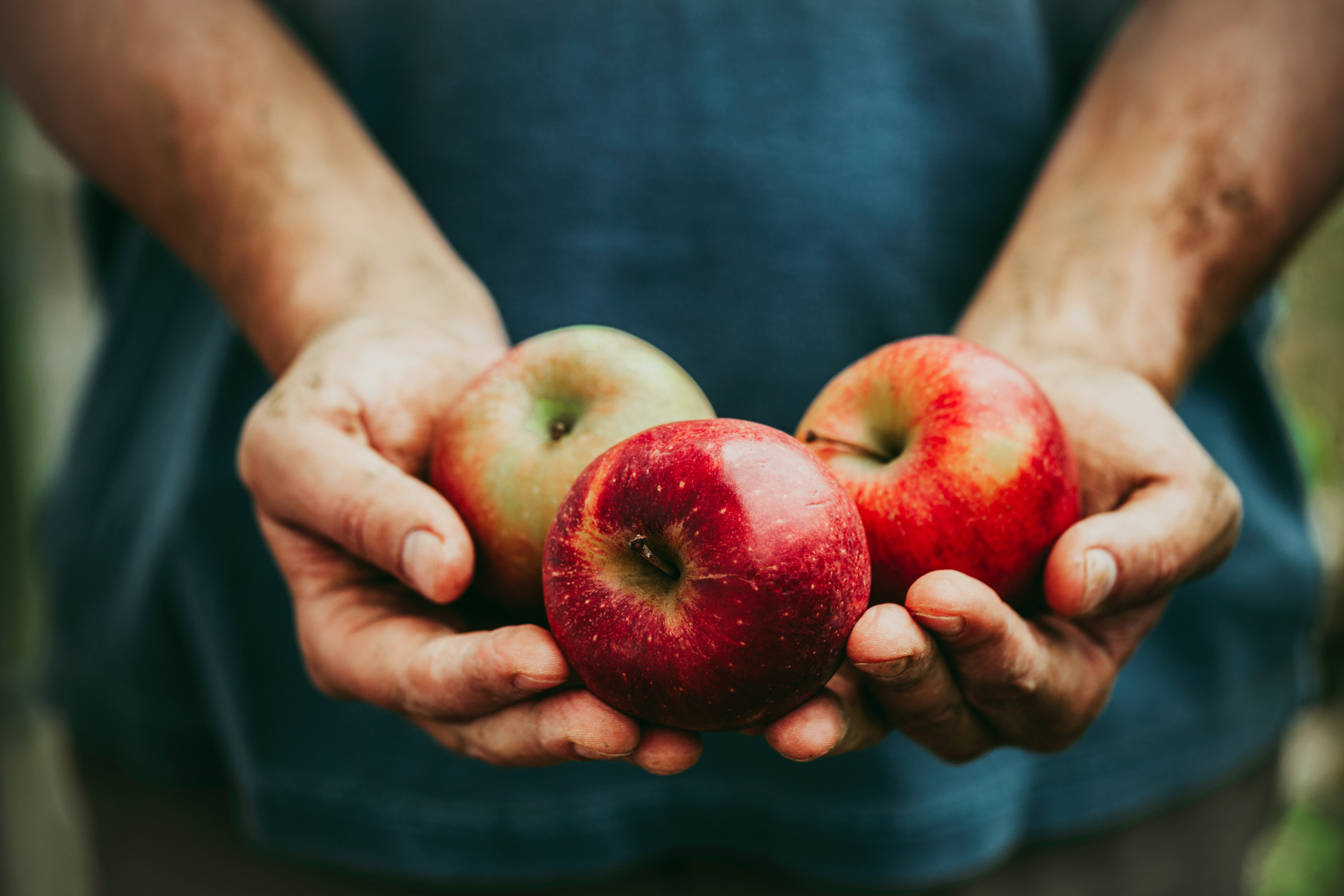Get Easy Health Digest™ in your inbox and don’t miss a thing when you subscribe today. Plus, get the free bonus report, Mother Nature’s Tips, Tricks and Remedies for Cholesterol, Blood Pressure & Blood Sugar as my way of saying welcome to the community!
4 conditions you can fight with fall’s favorite fruit

When I was a child, I never ate school lunches. My sister and I always had a home-packed lunch, complete with sandwich, veggies and, in the winter, a thermos of soup.
And almost year-round, but especially in the fall, there was always, always a shiny, crisp Macintosh apple.
We all know the saying, “an apple a day keeps the doctor away.” It originated in Wales, and has been shortened from the original: “Eat an apple on going to bed, and you’ll keep the doctor from earning his bread.”
Well, if I’m any example, this bit of wisdom may very well be true. I’ve hardly been sick a day in my life!
Related: 4 reasons to start eating apples the right way
Right now, fall is bringing us a bounty of apples in many colors, flavors, shapes and sizes. One of the great pleasures of the season where I live has always been to take a drive to a local orchard and pick our own.
There’s abundant research to show that, no matter what variety is your favorite, you’ll be making a healthy choice by eating that “apple a day!”
4 ways apples keep you healthy
1. Apples guard against stroke.
A 2011 study followed over 20,000 adults for ten years and monitored the fruits and vegetables they ate. It was clear that eating white-fleshed fruits, particularly apples and pears, lowered stroke risk by 52 percent.
The powerful antioxidant quercetin is thought to be the reason. It inhibits the production of cytokines, proteins that trigger inflammation in the body.
2. Apples lower LDL cholesterol.
This is one way that eating apples lowers your stroke risk. Keeping “bad” LDLs down reduces plaque buildup in the arteries. That plaque is the first step in the blood flow blockage that can result in a stroke.
Women between 45 and 65 who ate 75 grams of dried apples each day had a 23 percent decrease in LDLs over a period of six months. The researchers responsible for this study were stunned by these results.
“I never expected apple consumption to reduce bad cholesterol to this extent while increasing HDL cholesterol or good cholesterol by 4 percent,” said Dr. Bahram H. Arjmandi of Florida State University.
3. Apples reduce diabetes risk.
Data from three large-scale studies conducted between 1984 and 2009 revealed a strong connection between apples and lowered risk for type 2 diabetes.
A total of 187,382 participants, none of whom had diabetes at the start, had their diets analyzed every four years for how often they ate a range of fruits. Over the course of the study, 6.5 percent developed diabetes, but data showed that eating three servings a week of apples, pears, blueberries or raisins reduced the risk by 7 percent.
4. Apples may help prevent breast cancer.
The fact that fruits and vegetables are cancer fighters is nothing new. But it seems that apples are especially promising.
Dr. Rui Hai Liu, a prominent researcher and associate professor of food science at Cornell University, has conducted no less than six studies pointing to the anti-cancer power of apples and other fruits.
In his most recent animal study, which lasted 24 weeks, Dr. Liu found that a highly malignant type of adenocarcinoma, one of the main causes of death in breast cancer patients, developed in 81 percent of rats who did not eat apples, but only in 57, 50 and 23 percent of those who ate one, three or six apples a day, respectively.
Easy ways to get your apple-a-day
Apples may just be the most versatile fruit out there. There’s nothing like biting into a crisp, juicy one for pure enjoyment. But there are so many other ways to get your daily apple!
Add chopped apple to salads, oatmeal, pancakes or bread dough. Bake them with cinnamon to make your whole house smell good. Add sliced apples to grilled cheese.
Editor’s note: Are you feeling unusually tired? You may think this is normal aging, but the problem could be your master hormone. When it’s not working, your risk of age-related diseases skyrockets. To reset what many call “the trigger for all disease” and live better, longer, click here to discover The Insulin Factor: How to Repair Your Body’s Master Controller and Conquer Chronic Disease!
Sources:
Colors of fruit and vegetables and 10-year incidence of stroke — Stroke
‘Apple a day’ advice rooted in science — American Association for the Advancement of Science (AAAS)
Apples Prevent Mammary Tumors in Rats — Journal of Agricultural and Food Chemistry














